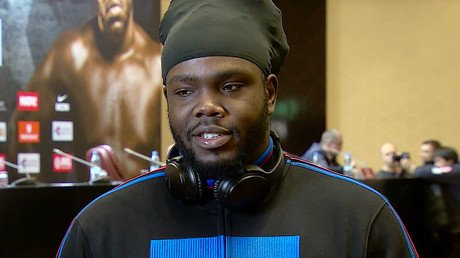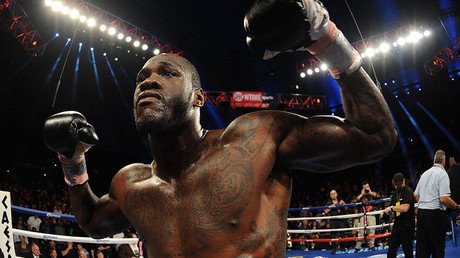Russian heavyweight boxer Alexander Povetkin has been disqualified for testing positive for ostarine, a banned substance, World Boxing Council (WBC) President Mauricio Sulaiman told R-Sport, adding that an in-depth investigation will be carried out.
Povetkin’s interim title fight against former heavyweight world titleholder Bermane Stiverne was due to take place on Saturday in Ekaterinburg, but has been cancelled.
The Russian boxer’s doping sample from December 6 indicated the presence of the performance-enhancing substance. Ostarine belongs to the category of Selective Androgen Receptor Modulators (SARMs), which are therapeutic compounds that have similar properties to anabolic agents, but with reduced androgenic properties. SARMs were added to the WADA (World Anti-Doping Agency) Prohibited List in 2008.
“I’m very disappointed in the actions of Povetkin,” ESPN quoted Stiverne as saying. “I’ve been training for months to be victorious. To wake up the day of the fight, have breakfast, take a nap and wake up to find out he tested positive is the worst possible situation,” he said.
Last month, the Haitian heavyweight Stiverne also failed a random drug test for methylhexaneamine, a banned stimulant also known as dimethyamylamine or DMAA. DMAA has been on the WADA prohibited substances list since 2010.
That time around, the WBC only fined Stiverne $75,000, and ruled that Stiverne could still fight, ESPN reported.
Meanwhile, Povetkin’s mandatory bout against WBC heavyweight champion Deontay Wilder, which was scheduled to take place in Moscow in May, was canceled after he failed a VADA test for the banned substance meldonium, which, Povetkin argued he had been taking before it was added to WADA’s banned list in January this year.
Russian Sports Minister Pavel Kolobkov believes that Povetkin should be punished of he’s found guilty of using prohibited substances.
"If he has been doping, he should be punished. But only a relevant commission can decide on that, because this is professional boxing,” Kolobkov said.
“As for the end of his career, it will only depend on his will and passion to win,” he added.
Andrey Ryabinsky, the head of the World of Boxing promotion company and Povetkin’s promoter, told RT that the current situation reveals double standards.
“Double standards, no doubt about it. Here’s an example – the investigation over Povetkin and meldonium lasted for nearly six months. It took only several days to settle down Stiverne’s case.
“The key question is why are we getting positive test results? They all repeatedly prove negative in all other laboratories, including the US lab, except for one random sample that we get immediately prior to the fight,” he said.
“Don’t want to jump to conclusions; just want to say it’s a strange coincidence,” he added.
Ryabinsky said that Povetkin has been passing doping tests consistently throughout the year, both before and after fights.
“To assert that he has ingested something [prohibited] is simply impossible. Theoretically, I can assume that this substance turned up in his test accidentally. This happens sometimes. At least Stiverne, when he was cleared and allowed to fight, used this phrasing, saying that the [prohibited] substance turned up in his system accidentally,” he said.
Ryabinsky pointed out that, although Povetkin had provided the sample last Tuesday, VADA (Voluntary Anti-Doping Association) chose to notify the fighters of the allegedly failed test only at the last minute, on Saturday. “This is not normal practice, it’s very strange,” Ryabinsky said.
“It’s the second time that right before the fight, all of a sudden, we get a ‘dirty’ test result – one and only, with all others coming clean. This happened before the fight with Wilder, when there had been five tests, and the fourth allegedly turned out to be dirty, while the fifth came out clean again. In the long run, Povetkin was acquitted, but the bout with Wilder was cancelled. Looks like history is repeating itself with Stiverne right now,” Povetkin’s promoter said.


